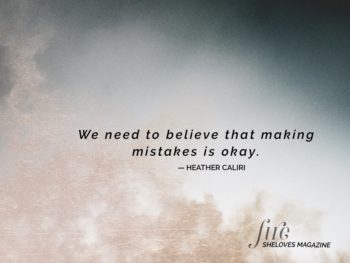
THE BIBLE is an antique volume
Written by faded men,
At the suggestion of Holy Spectres—
Subjects—Bethlehem—
Eden—the ancient Homestead—
Satan—the Brigadier,
Judas—the great Defaulter,
David—the Troubadour.
Sin—a distinguished Precipice
Others must resist,
Boys that “believe”
Are very lonesome—
Other boys are “lost.”
Had but the tale a warbling Teller
All the boys would come—
Orpheus’ sermon captivated,
It did not condemn.
–Emily Dickinson
Once, I looked up what Emily Dickinson had to say about the Bible and found the poem above.
I’ll be honest. My heart sank when I read it.
“Antique volume?” “Faded men?” “Spectres?”
Oh, Emily. Why am I not surprised that your words about the Bible unsettle me?
I took several poetry classes for my MFA almost a decade ago now. In one of them, we imitated various poets, then wrote longer papers on one poet of our choosing.
My professor, knowing faith was important to me, suggested I concentrate on Emily Dickinson.
I followed her advice the first half of the class. I did a presentation on Emily’s poetry, imitated one of her forms.
And then I asked to switch to someone else.
Because I didn’t like Emily that much.
Everyone waxes poetic (hah) about Emily Dickinson’s brilliance, her sui generis style, her boldness in a landscape that didn’t nurture women, her clever slant rhymes, her wit, her bravery.
But me? Emily made me nervous.
She clearly knew the Bible, theology, sermons, Christianity backwards, forwards, and slantways. She preferred slantways. She writes things that are theologically orthodox, and then she undercuts them with relish. She writes about doubt with a steady hand and without being afraid of it or herself.
Over and over, I read her and came to this conclusion: she didn’t really care if she was orthodox. She didn’t care. She didn’t care if she stuck out like a sore thumb in a culture that didn’t understand her.
I cared.
I cared about whether reading her would pull me off the precipice I was poised on. I wondered if reading her would demolish my faith. If she was comfortable slipping off the slope of orthodoxy, would she pull me with her? Was Emily dangerous?
And the answer is: Yes.
Emily is dangerous. Because she changes you.
She told me not to be afraid of my doubts and questions. She wrote things I didn’t understand. She told me to look my fear in the face and march into it.
Ten years ago, I decided not to follow her.
So when I looked up Emily’s poem about the Bible, I got that old MFA anxiety in my stomach. I didn’t want her to simply make fun of the Bible. I didn’t want her to simply write it off. And that’s what those words whispered to me at the beginning.
I was afraid of what she’d say if I looked too close.
But now, I decided to hold her hand do it anyway, just like she urged me to.
On first glance, I thought that she was comparing the Bible to Orpheus, to Greek mythology, and the Bible was coming up short. “I’d rather read about Orpheus than this tired book by faded men,” I thought she was saying.
Then I got out my daughter’s book of Greek mythology and read about Orpheus.
Orpheus, a skilled musician, lost his true love, and mourned her. He decided to sing his way into the underworld to reclaim her. He hoped that his song—his sermon—would melt Hades’ icy heart.
And—for a time–it did. He waltzed past the obstacles of the underworld, and charmed Hades into giving him his wife back with a song.
It didn’t end up working out (he lost heart at the end), but he got closer than anyone ever did towards breaking the power of death. His sung “sermon” captivated everyone.
He conquered the underworld with a song of love.
“Had but the tale a warbling Teller/All the boys would come,” Emily writes.
Jesus, my heart says. The Teller is Jesus. He comes to captivate, not to condemn. All the boys—and girls—are following him.
All of a sudden, I love Emily. She’s telling me Jesus is singing the song of love to free us from death. She’s surprising me with her slantways praise of the Almighty.
Here’s why I don’t always read poetry. It’s hard. You have to look up words you don’t understand, you have to parse meanings, spaces, dashes and line breaks, and even then you might not get it. This is especially true with Miss Dickinson, whose words nest meanings like Chinese boxes. Sometimes, I am afraid of finding out what she’s saying in those overfull words. What is a “brigadier?” A “defaulter?” Why “spectre?”
And this struggle to find meaning is true with the Bible, isn’t it? We don’t get it. It’s not always get-able. Sure, we can study context and exegesis and hermeutics, but like poetry, like Emily, sometimes its meaning dances just out of our reach.
The Bible is a Mystery, just like poetry. And I don’t always like things I don’t understand. I am afraid of what I don’t understand.
But sometimes the things I don’t understand are just the things I need. Sometimes, walking straight into unknowing is the way into the light.
Do you read poetry? Do you read the Bible? Why or why not?
Photo Credit: Amherst College Archives














I really enjoyed this post Heather. God does not cast us aside for having doubts and fears and if we are truly His, He will never let us go permanently away from His truth. Continue to seek to understand and you’re correct in that there are things we won’t understand, Is 55:8 “For my thoughts are not your thoughts, neither are My ways your ways”, declares the Lord. “As the heavens are higher than the earth, so are My ways higher than your ways and my thoughts than your thoughts.” Be Blessed. Tammy
Thanks, Tammy! Yes, I agree–I have seen recently that this long desire not to have doubts or look to closely at my fear was actually a lack of trust in God–that he was big enough to hold me even if I didn’t have everything together. I’m grateful to feel freedom from that fear–and to relax into his love and provision.
Thanks for this. I feared the same after reading her poem. It was referenced in some material I was using to prepare for a youth Sunday school class.
I’m glad to know I’m not the only one who felt nervous about her 🙂 She’s crazy fearless.